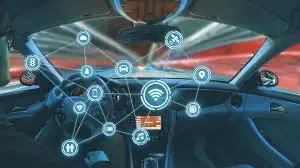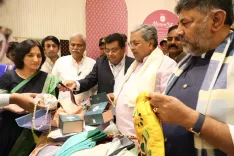U.S. Regulation on Connected Vehicles Alleviates Market Concerns in South Korea

Synopsis
Key Takeaways
- U.S. regulation on connected cars will ease uncertainties for South Korean manufacturers.
- Sales of vehicles with components from China and Russia will be banned.
- Automakers must provide a declaration of conformity.
- Record-keeping of the SBOM is required for 10 years.
- Potential adjustments to supply chains are anticipated.
Seoul, Jan 15 (NationPress) The industry ministry of South Korea expressed approval regarding Washington's finalized regulation on connected vehicles on Wednesday, stating it will eliminate numerous uncertainties for local car manufacturers.
On Tuesday, the U.S. Bureau of Industry and Security announced a new regulation banning the sale of connected vehicles equipped with cameras, software, and other components produced in China and Russia, as reported by Yonhap news agency.
The ministry noted, “After the U.S. issued a preliminary announcement concerning the regulation of connected vehicles in early 2024, the government collected feedback from the local industry.”
It added, “The final regulation has taken into account most of the government's feedback, including limiting the regulation's scope, defining terms more clearly, and relaxing rules surrounding the submission of the software bill of materials (SBOM), addressing the majority of the industry's issues.”
The ministry also stated that it will continue to collaborate with the U.S. for the rule's implementation. The latest regulation indicates that the ban on selling vehicles with software from China or Russia will be enforced starting with the model year 2027, while hardware restrictions will come into effect in model year 2030.
Automakers will be required to submit a declaration of conformity to export vehicles to the U.S., and they must keep records of the SBOM for at least 10 years.
In addition, the U.S. Department of Commerce has put forward a rule to restrict the import or sale of connected vehicles that integrate specific software and hardware linked to China or Russia, citing concerns for national security.
The Bureau of Industry and Security (BIS) released a notice about the proposed regulation amid worries that vehicles equipped with cameras, sensors, software, and other components made in China could be used to extract sensitive information about drivers and passengers, as well as U.S. infrastructure.
This regulation is anticipated to prompt South Korean automakers to modify their supply chains if they have utilized prohibited software and components from China. However, analysts believe that this measure could hinder potential Chinese competitors from entering the U.S. market.









